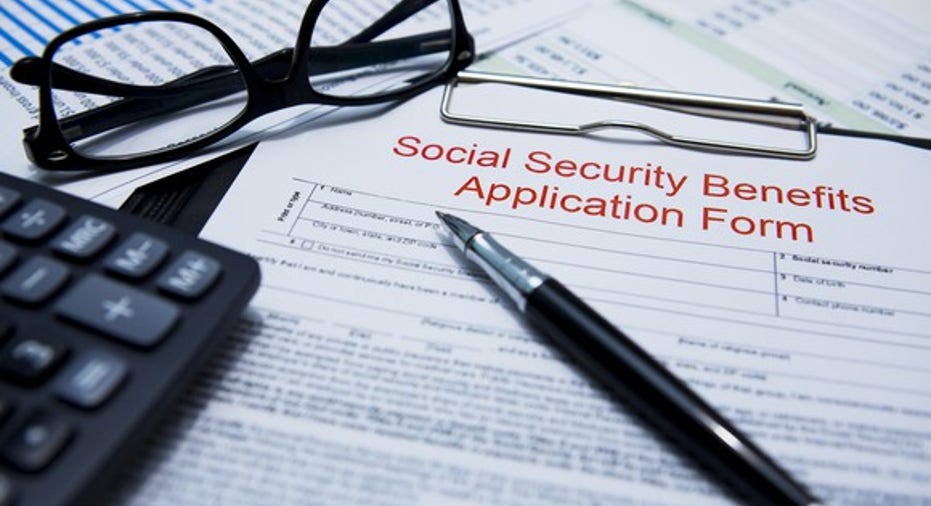Should You Wait To Claim Social Security?

Image source: Getty Images.
The vast majority of Americans claim Social Security at or before their full retirement age. In fact, just 3% wait until they turn 70, the latest age to start collecting benefits. There is no one-size-fits-all best age to claim Social Security, but there are some key questions you can ask yourself that can help you determine the best age for your particular situation, and if it might be a good idea to wait.
Will you have enough income in retirement?
Retirement isn't about saving enough money, it's about creating enough sustainable income to cover all of your post-retirement expenses. If you have a nice pension from your job and a Social Security check, you may be able to get by with little savings, and the same can be said if you plan to cut your post-retirement expenses drastically.
However, if you don't have a pension, your retirement income will most likely come from two places -- your retirement savings, such as your 401(k), and Social Security. As a general (not perfect) rule of thumb, it's safe to assume that you can use 4% of your nest egg per year after you retire, without having to worry about running out of money. To figure out what this means to you, simply take your retirement savings, or your projected savings at retirement, and divide this number by 25. This is the annual income you should expect from savings.
Next, figure out how much Social Security income you'll get. The best estimate is available by creating an account on www.ssa.gov and viewing your latest Social Security statement. Not only does this contain an estimate of your benefit at full retirement age, but it can also tell you the expected affect of early or late retirement.
If the combination of Social Security and the income you can expect from your savings isn't enough, it could be in your best interest to wait a little while. Not only will your inflation-protected Social Security benefit be permanently increased, but it will also give you a little more time to allow your savings to grow.
How's your health?
If you've ever wondered why Social Security pays higher benefits to people who wait and lower benefits to people who claim early, it isn't to "reward" patience or "punish" early retirees. Rather, it's to ensure that the average retiree gets the exact same amount of money from Social Security throughout his or her lifetime, regardless of when they claimed.
The important thing to keep in mind is that this is based on actuarial life expectancies -- not your personal situation. If you're in poor health, or have a history of heart disease or other ailments in your family, it might be in your best interest to claim as early as possible. On the other hand, if you're in excellent health and your relatives tend to live into their 80s and 90s, you might be better off waiting.
Of course, there is no way to accurately project how long you'll live. Seemingly healthy people die all the time, and people in poor health live for decades. The point is to use your own health and family history to give yourself the best chance to maximize your benefits.
Don't forget about your spouse
Social Security spousal benefits should certainly play a role in your retirement planning, if they apply to you. Essentially, if your spouse is entitled to a Social Security retirement benefit that is less than half of yours, a spousal benefit will bring theirs up to half of your full retirement benefit (also known as your primary insurance amount, or PIA).
Here's the interesting part. Unlike your Social Security retirement benefit, a spousal benefit doesn't get any increase if your spouse waits past their full retirement age to claim it. For example, if you and your spouse are the same age, you'll get an 8% annual increase for each year you wait past your full retirement age, but he or she won't. One of the main requirements for a spousal benefit to be paid is that the primary earner must already be collecting benefits -- in other words, you can't file for a spousal benefit and delay the primary beneficiary's retirement.
Therefore, it is rarely a good idea for couples who are expecting a substantial spousal benefit to wait past the spouse's full retirement age to claim.
The bottom line
Note that this isn't an exhaustive list of criteria that could justify claiming Social Security early or late. There are literally hundreds of possible factors you may want to take into account. For example, if you're still working, the Social Security earnings test could take away your benefits, so it may be beneficial to wait. Or, if you and your spouse are both expecting comparable retirement benefits, one spouse may want to claim on time while the other allows his or her benefit to build.
The point is that the decision to claim Social Security is an important one, so it's important to carefully assess your personal situation before you decide to fill out the application.
The $15,834 Social Security bonus most retirees completely overlook If you're like most Americans, you're a few years (or more) behind on your retirement savings. But a handful of little-known "Social Security secrets" could help ensure a boost in your retirement income. For example: one easy trick could pay you as much as $15,834 more... each year! Once you learn how to maximize your Social Security benefits, we think you could retire confidently with the peace of mind we're all after.Simply click here to discover how to learn more about these strategies.
Try any of our Foolish newsletter services free for 30 days. We Fools may not all hold the same opinions, but we all believe that considering a diverse range of insights makes us better investors. The Motley Fool has a disclosure policy.



















